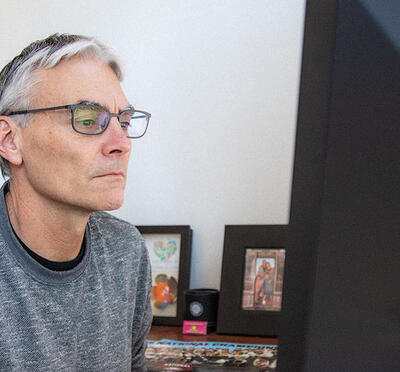“I never take no for an answer,” says Charlotte Rose, a graduate student at Oregon State University who is working toward a master’s degree in radiation health physics with a minor in statistics.
It’s that kind of persistence that Rose, a single mother, needed to get where she is today.
Rose was raised in a blue-collar community in Winnipeg, Canada and worked for 12 years as an X-ray technologist.
“Being an X-ray and CT tech was so incredibly fulfilling on every level,” Rose said. “I felt really connected to other people professionally, as well as to patients. I had a really great experience working and thought it was intellectually stimulating and emotionally fulfilling.”
After Rose got married and had a son, her husband found a job in Seattle, where she chose to be a stay-at-home mother. When her son started kindergarten, Rose decided to go back to school as well, and she enrolled at a local community college.
“I left it open as to what my major was going to be, but I always tended toward physics and calculus,” said Rose, who often ended up tutoring the engineering students she studied with. “I thought nuclear engineering would be very interesting, especially because I was an X-ray tech. Radiation protection was something I already had experience in.”
When she discovered the undergraduate program in radiation health physics (RHP) at Oregon State, she thought it would be a perfect fit.
Her life took an unexpected turn when she got divorced.
She and her son moved to Corvallis, and Rose enrolled in the RHP program at Oregon State. This is where her persistence paid off.
“As an adult and a single parent, you’re very motivated to succeed because your livelihood depends on it,” she said.
For two years, in order to graduate, she took 17 credits each term, plus 8 to 10 credits in the summer. Rose received the School of Nuclear Science and Engineering’s student of the year award in 2018, which stunned her.
“I get good grades, but that really surprised me. I still think they probably just calculated it wrong,” she said, laughing.
Even more surprising to Rose, Camille Palmer, associate professor of nuclear science and engineering, asked Rose to consider going to graduate school. Palmer says it’s important to reach out to students who are unfamiliar with graduate school.
“She just stood out in that she was a very high performer and was very present and engaged in projects and fit in really well,” Palmer said.
Though it wasn’t something she’d considered before, Rose realized that getting a master’s degree in radiation health physics, coupled with her interest in human behavior, would allow her to have a career that could help promote the peaceful use of nuclear technologies.
What’s more, Rose wants to use her talents to help give back to the world. Growing up in Winnipeg, she was constantly surrounded by community.
“We were always supported, we were always fed, and we were always clothed,” she said. “Finding a ride somewhere was never difficult. I can’t help but think that I really got to this point in my life — and I think everybody does — because of the support of the community around me. I’ve always had that in my mind. It’s not enough to exist in the world and succeed for me. It means a lot to give something back.”
Ideally, she’d like to work for the International Atomic Energy Agency — “It’s the gold standard,” she says — which works with the United Nations to promote the safe and peaceful use of nuclear technologies.
“I have full confidence she’ll do quite well,” Palmer said.


